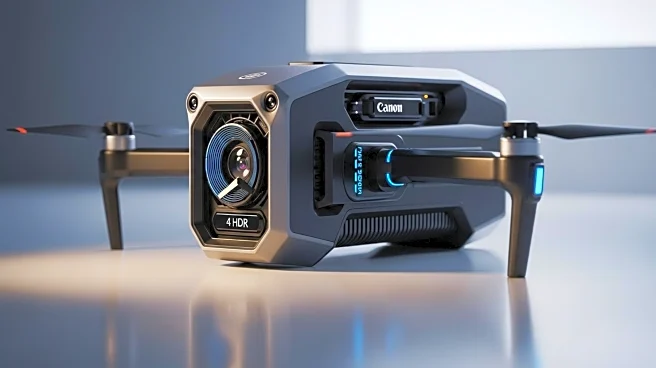What is the story about?
What's Happening?
DroneShield, an Australian defense technology company, experienced a significant stock price drop of 19% on October 2, 2025, following a period of substantial growth. The company's shares had surged over 577% year-to-date, driven by high demand for its counter-drone technologies amid geopolitical tensions. DroneShield specializes in systems that detect and neutralize unmanned aerial systems, which have become crucial due to the increasing use of drones in modern warfare and security threats. Despite the recent stock decline, the company continues to secure significant contracts, including two worth $7.9 million from the U.S. Department of Defense, and plans to expand its operations in the United States.
Why It's Important?
The rise and fall of DroneShield's stock highlight the volatile nature of defense technology investments, especially in the context of geopolitical conflicts. The demand for anti-drone systems is growing as drones are increasingly used for reconnaissance and attacks, making counter-UAS capabilities essential for national security. DroneShield's technology is in high demand from both military and civilian sectors, indicating a robust market for such solutions. However, the stock's high valuation and subsequent profit-taking by investors underscore the risks associated with momentum-driven investments. The company's continued expansion and contract acquisitions suggest strong long-term prospects, but the recent stock volatility serves as a cautionary tale for investors.
What's Next?
DroneShield plans to expand its research and development operations in the United States, focusing on software and artificial intelligence to meet growing demand. The company aims to double its American workforce and establish a new facility in Virginia. Additionally, the European Union's initiative to build a 'drone wall' along its eastern flank, in response to Russian drone incursions, highlights the increasing importance of anti-drone technologies. This project involves integrating various detection and neutralization systems to protect European airspace. As geopolitical tensions persist, the demand for counter-drone solutions is expected to remain strong, potentially benefiting companies like DroneShield.
Beyond the Headlines
The development of anti-drone technologies raises ethical and legal questions about surveillance and privacy. As these systems become more prevalent, there may be increased scrutiny over their use in civilian areas and the potential for misuse. Additionally, the rapid advancement of drone technology and countermeasures could lead to an arms race in unmanned aerial systems, prompting discussions on international regulations and agreements to manage their deployment. The balance between security and privacy will likely become a significant topic as these technologies continue to evolve.















